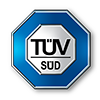Chapter I: General requirements
1. Ethical principles
Each step in the clinical investigation, from the initial consideration of the need for and justification of the study to the publication of the results, shall be carried out in accordance with recognised ethical principles.
2. Methods
2.1. Clinical investigations shall be performed on the basis of an appropriate plan of investigation reflecting the latest scientific and technical knowledge and defined in such a way as to confirm or refute the manufacturer's claims regarding the safety, performance and aspects relating to benefit-risk of devices as referred to in Article 62(1); the clinical investigations shall include an adequate number of observations to guarantee the scientific validity of the conclusions. The rationale for the design and chosen statistical methodology shall be presented as further described in Section 3.6 of Chapter II of this Annex. 2.2. The procedures used to perform the clinical investigation shall be appropriate to the device under investigation.
2.3. The research methodologies used to perform the clinical investigation shall be appropriate to the device under investigation.
2.4. Clinical investigations shall be performed in accordance with the clinical investigation plan by a sufficient number of intended users and in a clinical environment that is representative of the intended normal conditions of use of the device in the target patient population. Clinical investigations shall be in line with the clinical evaluation plan as referred to in Part A of Annex XIV.
2.5. All the appropriate technical and functional features of the device, in particular those involving safety and performance, and their expected clinical outcomes shall be appropriately addressed in the investigational design. A list of the technical and functional features of the device and the related expected clinical outcomes shall be provided.
2.6. The endpoints of the clinical investigation shall address the intended purpose, clinical benefits, performance and safety of the device. The endpoints shall be determined and assessed using scientifically valid methodologies. The primary endpoint shall be appropriate to the device and clinically relevant.
2.7. Investigators shall have access to the technical and clinical data regarding the device. Personnel involved in the conduct of an investigation shall be adequately instructed and trained in the proper use of the investigational device, and as regards the clinical investigation plan and good clinical practice. This training shall be verified and where necessary arranged by the sponsor and documented appropriately.
2.8. The clinical investigation report, signed by the investigator, shall contain a critical evaluation of all the data collected during the clinical investigation, and shall include any negative findings.
